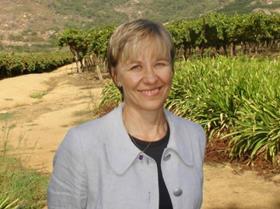
South Africa’s fresh produce export industry must prepare for new challenges in its efforts to increase its market share in Asia, according to the former head of the country’s table grape growers association.
Gaining market access will become increasingly complicated as more and more countries adjust their access requirements in order to protect their own crops, Elaine Alexander, who until recently was executive director of SATI and at the forefront of South Africa’s market access activities, told Fruitnet.
“The trade access environment is now extremely challenging and is destined to become more sensitive in future,” she said. “More and more countries are developing special requirements and have to be treated with special market status because governments are increasingly looking to protect their own production and therefore food security.”
Alexander is due to start in her new role as deputy director economic development, trade and marketing at the National Department of Agriculture, Forestry and Fisheries (DAFF) next week.
“I am sure that many of these issues will also cross my desk at DAFF, but my experience at SATI shows that we are now entering a whole new environment,” she said.
She said South Africa must come to terms with the new challenges in order to stay competitive. “More countries will move to introducing special requirements and it is a case of adapt or die,” she said. “Nobody has yet come to terms with the cost of compliance, and we will have to focus on integrating the trade and the technical side of our business far more in future.
In her view, those countries that succeed in future will be the ones that can best deal with special market requirements. “Those who do this well, will be the success stories of the future,” said Alexander. “I am certain that South Africans and the whole of Africa will have to consult and work together to ensure that they fit into this future world.”



